-
 Bitcoin
Bitcoin $104,347.2463
2.62% -
 Ethereum
Ethereum $2,477.8449
2.19% -
 Tether USDt
Tether USDt $1.0007
0.03% -
 XRP
XRP $2.1619
3.13% -
 BNB
BNB $642.1880
1.12% -
 Solana
Solana $148.1316
2.30% -
 USDC
USDC $0.9998
-0.02% -
 Dogecoin
Dogecoin $0.1790
4.40% -
 TRON
TRON $0.2775
2.31% -
 Cardano
Cardano $0.6541
4.28% -
 Hyperliquid
Hyperliquid $33.2103
-3.51% -
 Sui
Sui $3.2085
8.85% -
 Chainlink
Chainlink $13.5376
4.67% -
 Avalanche
Avalanche $19.6575
4.42% -
 UNUS SED LEO
UNUS SED LEO $8.9607
1.76% -
 Stellar
Stellar $0.2631
2.08% -
 Bitcoin Cash
Bitcoin Cash $396.8964
2.83% -
 Toncoin
Toncoin $3.1530
3.36% -
 Shiba Inu
Shiba Inu $0.0...01243
3.47% -
 Hedera
Hedera $0.1648
3.03% -
 Litecoin
Litecoin $87.1125
4.25% -
 Polkadot
Polkadot $3.8838
1.42% -
 Monero
Monero $323.7803
2.10% -
 Ethena USDe
Ethena USDe $1.0013
0.02% -
 Bitget Token
Bitget Token $4.5994
1.22% -
 Dai
Dai $0.9999
-0.01% -
 Pepe
Pepe $0.0...01108
3.52% -
 Pi
Pi $0.6241
-0.06% -
 Aave
Aave $250.3047
2.73% -
 Uniswap
Uniswap $5.9819
1.05%
How to calculate Bitget funding rate? Bitget perpetual contract cost analysis
The funding rate on Bitget, calculated every 8 hours, impacts costs for traders; long holders pay short holders if positive, and vice versa if negative.
Jun 05, 2025 at 10:49 am
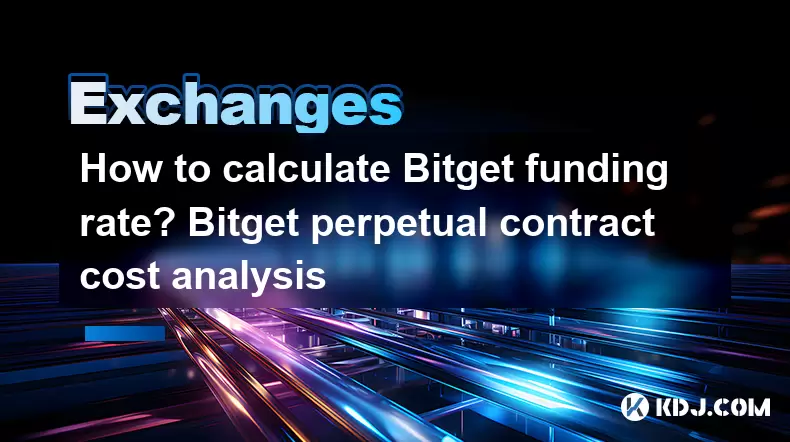
The funding rate is a critical component of trading perpetual contracts on Bitget, as it directly impacts the cost and potential profitability of holding positions over time. Understanding how to calculate the funding rate and analyze the costs associated with perpetual contracts is essential for any trader looking to engage with these financial instruments effectively. In this article, we will delve into the specifics of calculating Bitget's funding rate and provide a comprehensive analysis of the costs involved in trading perpetual contracts on this platform.
What is the Funding Rate?
The funding rate is a mechanism used in perpetual futures contracts to ensure that the market price of the contract remains closely aligned with the underlying asset's spot price. It is essentially a periodic payment made between traders based on the difference between the perpetual contract's market price and the spot price of the underlying asset. If the perpetual contract's price is higher than the spot price, long position holders pay short position holders. Conversely, if the perpetual contract's price is lower than the spot price, short position holders pay long position holders.
How to Calculate Bitget's Funding Rate
Calculating the funding rate on Bitget involves understanding the formula and the variables used in the calculation. The funding rate is typically calculated every eight hours and is expressed as a percentage. The formula for the funding rate is as follows:
[ \text{Funding Rate} = \text{Premium Index} + \text{Clamp}(\text{Interest Rate} - \text{Premium Index}, -0.03\%, 0.03\%) ]
Here are the steps to calculate the funding rate on Bitget:
- Determine the Premium Index: The premium index is the average difference between the perpetual contract's price and the spot price over a specific period, typically the last eight hours. Bitget calculates this index to reflect the market's sentiment towards the perpetual contract.
- Identify the Interest Rate: The interest rate is a fixed rate set by Bitget, representing the cost of capital for holding positions. This rate is usually a small percentage and can vary depending on the asset.
- Apply the Clamp Function: The clamp function limits the difference between the interest rate and the premium index to a range of -0.03% to 0.03%. This ensures that the funding rate does not fluctuate too wildly and maintains stability in the market.
- Calculate the Funding Rate: Add the premium index to the result of the clamp function to get the final funding rate.
Example of Funding Rate Calculation
Let's go through an example to illustrate how to calculate the funding rate on Bitget. Suppose the premium index is 0.05%, and the interest rate is 0.01%. Using the formula:
[ \text{Funding Rate} = 0.05\% + \text{Clamp}(0.01\% - 0.05\%, -0.03\%, 0.03\%) ]
[ \text{Clamp}(-0.04\%, -0.03\%, 0.03\%) = -0.03\% ]
[ \text{Funding Rate} = 0.05\% + (-0.03\%) = 0.02\% ]
In this example, the funding rate would be 0.02%, meaning that long position holders would pay short position holders 0.02% of their position's value every eight hours.
Analyzing the Costs of Bitget Perpetual Contracts
Understanding the costs associated with trading perpetual contracts on Bitget is crucial for managing your trading strategy effectively. The costs can be broken down into several components:
- Funding Fees: As discussed, the funding rate can either be a cost or a benefit depending on whether you are holding a long or short position. If the funding rate is positive, long position holders pay short position holders, and if it is negative, short position holders pay long position holders.
- Trading Fees: Bitget charges trading fees for opening and closing positions. These fees are typically a small percentage of the trade value and can vary based on your trading volume and the type of account you have (e.g., VIP levels).
- Position Maintenance Costs: Holding a position over time incurs costs such as the funding rate and any interest on borrowed funds if you are using leverage. These costs can add up and impact your overall profitability.
Strategies to Minimize Costs
To minimize the costs associated with trading perpetual contracts on Bitget, consider the following strategies:
- Monitor the Funding Rate: Keep a close eye on the funding rate and adjust your positions accordingly. If the funding rate is high and you are holding a long position, it might be beneficial to close your position before the next funding period to avoid paying high fees.
- Optimize Trading Fees: Take advantage of Bitget's fee structure by increasing your trading volume to qualify for lower fees. Consider using a maker order instead of a taker order to reduce trading costs.
- Use Leverage Wisely: While leverage can amplify your returns, it also increases the costs of holding positions. Use leverage judiciously and be mindful of the interest rates on borrowed funds.
Practical Example of Cost Analysis
Let's consider a practical example to illustrate the cost analysis of trading a perpetual contract on Bitget. Suppose you open a long position on BTC/USDT with a notional value of $10,000 and a leverage of 10x. The funding rate is 0.02%, and the trading fee for opening and closing the position is 0.06% each.
- Funding Fees: If you hold the position for 24 hours (three funding periods), the total funding fee would be:
[ 0.02\% \times 3 = 0.06\% ]
[ \text{Funding Fee} = 0.06\% \times \$10,000 = $6 ]
- Trading Fees: The total trading fee for opening and closing the position would be:
[ 0.06\% + 0.06\% = 0.12\% ]
[ \text{Trading Fee} = 0.12\% \times $10,000 = $12 ]
- Total Cost: The total cost of holding the position for 24 hours would be:
[ $6 + $12 = $18 ]
In this example, the total cost of trading and holding the position for 24 hours is $18. This cost analysis helps you understand the impact of fees and funding rates on your trading profitability.
Frequently Asked Questions
Q: How often does Bitget calculate the funding rate?
A: Bitget calculates the funding rate every eight hours. This means that the funding rate is applied three times per day, and traders need to be aware of these intervals to manage their positions effectively.
Q: Can the funding rate be negative on Bitget?
A: Yes, the funding rate can be negative on Bitget. If the perpetual contract's price is lower than the spot price, the funding rate will be negative, and short position holders will pay long position holders.
Q: How can I find the current funding rate on Bitget?
A: You can find the current funding rate on Bitget by navigating to the perpetual contract trading page for the specific asset you are interested in. The funding rate is typically displayed prominently on the trading interface.
Q: Does Bitget charge different trading fees for different types of accounts?
A: Yes, Bitget offers different trading fee structures based on the type of account and trading volume. Users with higher trading volumes or VIP status may qualify for lower trading fees, which can significantly impact the overall cost of trading.
Disclaimer:info@kdj.com
The information provided is not trading advice. kdj.com does not assume any responsibility for any investments made based on the information provided in this article. Cryptocurrencies are highly volatile and it is highly recommended that you invest with caution after thorough research!
If you believe that the content used on this website infringes your copyright, please contact us immediately (info@kdj.com) and we will delete it promptly.
- Gold prices rose in the Asian trading session on Thursday
- 2025-06-07 06:40:15
- What is Core (CORE) ?
- 2025-06-07 06:40:15
- Flip a $1,000 Investment Into $90,000: These 4 High-Growth Tokens May Surpass Solana (SOL) and Ripple (XRP) in 3 Months
- 2025-06-07 06:35:12
- Bitcoin is closing in on $100,000 after US President Donald Trump teased a major trade deal
- 2025-06-07 06:35:12
- Rushi Manche's Dismissal as Movement Labs CEO Has Shaken the Blockchain Industry
- 2025-06-07 06:30:14
- Remittix's PayFi Ecosystem Might Just Possess Better Benefits Than SOL's Scalable Network
- 2025-06-07 06:30:14
Related knowledge
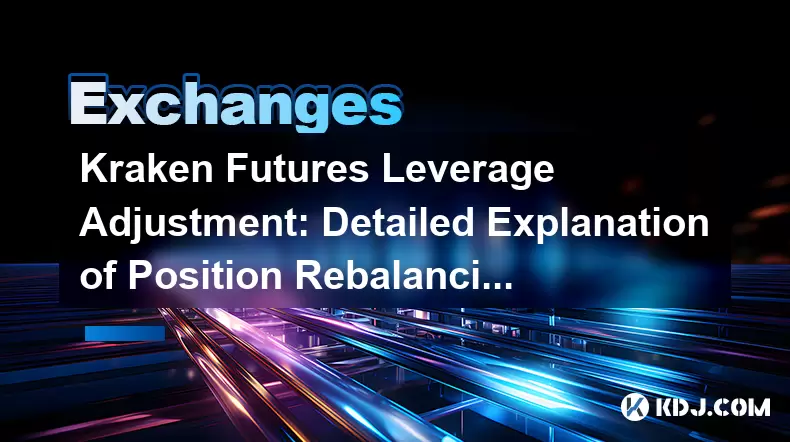
Kraken Futures Leverage Adjustment: Detailed Explanation of Position Rebalancing Operation Steps
Jun 06,2025 at 10:36am
Kraken Futures offers traders the ability to adjust leverage on their positions, which is a crucial aspect of managing risk and maximizing potential returns. In this article, we will delve into the detailed steps of how to perform a leverage adjustment and rebalance your positions on Kraken Futures. Whether you are a seasoned trader or new to the platfo...
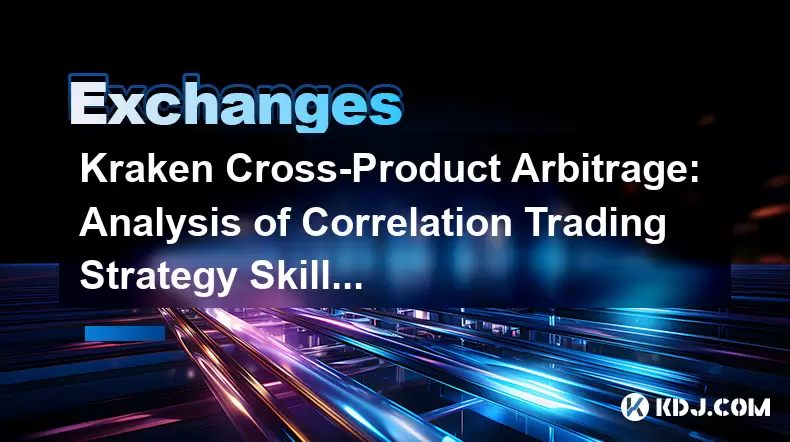
Kraken Cross-Product Arbitrage: Analysis of Correlation Trading Strategy Skills
May 31,2025 at 04:08am
Introduction to Kraken Cross-Product ArbitrageKraken, one of the leading cryptocurrency exchanges, offers a diverse range of trading products, including spot trading, margin trading, and futures trading. Cross-product arbitrage on Kraken involves exploiting price differences between these different trading products to generate profits. This strategy req...
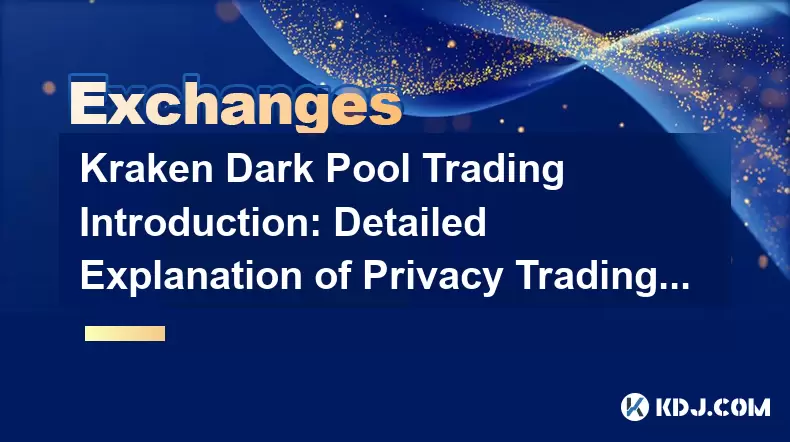
Kraken Dark Pool Trading Introduction: Detailed Explanation of Privacy Trading Operation Steps
Jun 02,2025 at 12:14pm
Kraken, one of the leading cryptocurrency exchanges, offers a unique feature known as Dark Pool Trading. This service is designed to provide traders with enhanced privacy and reduced market impact when executing large orders. In this article, we will delve into the specifics of Kraken's Dark Pool Trading, explaining what it is, why it's beneficial, and ...
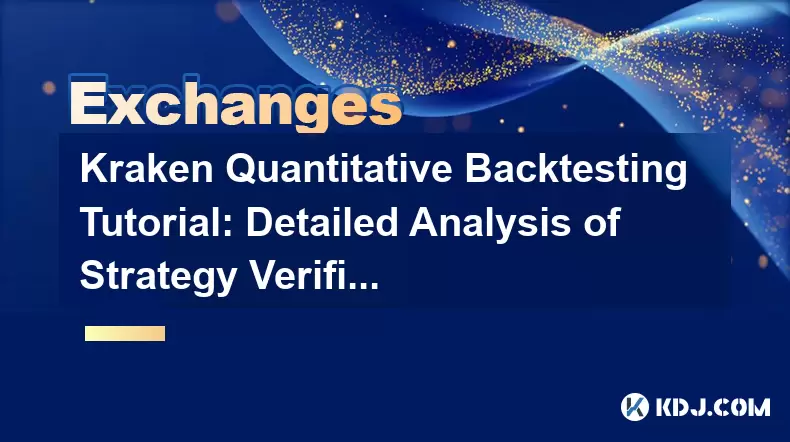
Kraken Quantitative Backtesting Tutorial: Detailed Analysis of Strategy Verification Steps
Jun 05,2025 at 02:35pm
Kraken Quantitative Backtesting Tutorial: Detailed Analysis of Strategy Verification Steps Backtesting is a critical component of developing and refining trading strategies in the cryptocurrency market. It allows traders to evaluate the performance of their strategies using historical data before risking real capital. Kraken, a prominent cryptocurrency ...
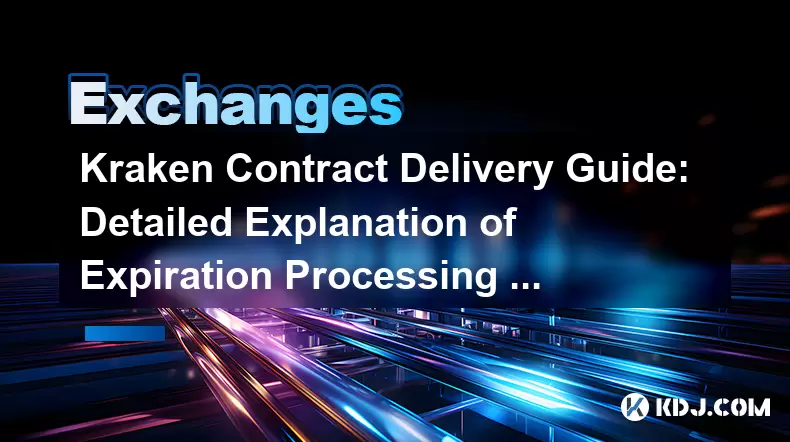
Kraken Contract Delivery Guide: Detailed Explanation of Expiration Processing Operation
May 31,2025 at 09:36am
Kraken, one of the leading cryptocurrency exchanges, offers a variety of trading options, including futures contracts. Understanding how to manage contract expirations is crucial for traders to maximize their returns and minimize potential losses. This guide provides a detailed explanation of the expiration processing operation on Kraken, ensuring you a...
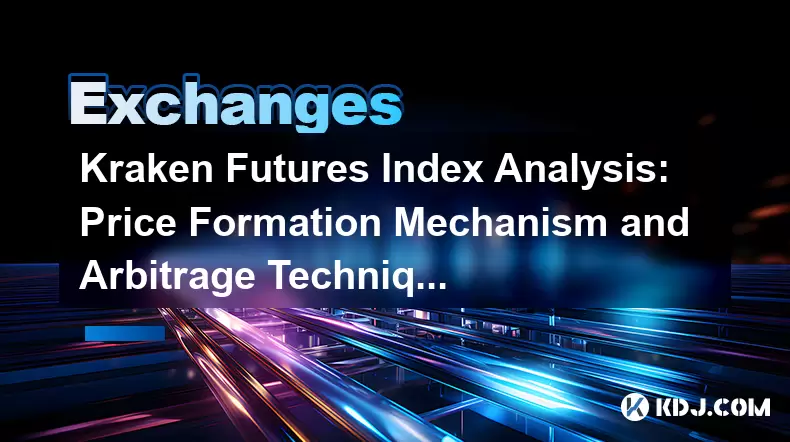
Kraken Futures Index Analysis: Price Formation Mechanism and Arbitrage Techniques
May 31,2025 at 02:42pm
Introduction to Kraken Futures IndexThe Kraken Futures Index is a crucial tool for traders and investors within the cryptocurrency market. It serves as a benchmark for futures contracts traded on the Kraken platform, providing insights into the price movements and market sentiment of various cryptocurrencies. Understanding the price formation mechanism ...

Kraken Futures Leverage Adjustment: Detailed Explanation of Position Rebalancing Operation Steps
Jun 06,2025 at 10:36am
Kraken Futures offers traders the ability to adjust leverage on their positions, which is a crucial aspect of managing risk and maximizing potential returns. In this article, we will delve into the detailed steps of how to perform a leverage adjustment and rebalance your positions on Kraken Futures. Whether you are a seasoned trader or new to the platfo...

Kraken Cross-Product Arbitrage: Analysis of Correlation Trading Strategy Skills
May 31,2025 at 04:08am
Introduction to Kraken Cross-Product ArbitrageKraken, one of the leading cryptocurrency exchanges, offers a diverse range of trading products, including spot trading, margin trading, and futures trading. Cross-product arbitrage on Kraken involves exploiting price differences between these different trading products to generate profits. This strategy req...

Kraken Dark Pool Trading Introduction: Detailed Explanation of Privacy Trading Operation Steps
Jun 02,2025 at 12:14pm
Kraken, one of the leading cryptocurrency exchanges, offers a unique feature known as Dark Pool Trading. This service is designed to provide traders with enhanced privacy and reduced market impact when executing large orders. In this article, we will delve into the specifics of Kraken's Dark Pool Trading, explaining what it is, why it's beneficial, and ...

Kraken Quantitative Backtesting Tutorial: Detailed Analysis of Strategy Verification Steps
Jun 05,2025 at 02:35pm
Kraken Quantitative Backtesting Tutorial: Detailed Analysis of Strategy Verification Steps Backtesting is a critical component of developing and refining trading strategies in the cryptocurrency market. It allows traders to evaluate the performance of their strategies using historical data before risking real capital. Kraken, a prominent cryptocurrency ...

Kraken Contract Delivery Guide: Detailed Explanation of Expiration Processing Operation
May 31,2025 at 09:36am
Kraken, one of the leading cryptocurrency exchanges, offers a variety of trading options, including futures contracts. Understanding how to manage contract expirations is crucial for traders to maximize their returns and minimize potential losses. This guide provides a detailed explanation of the expiration processing operation on Kraken, ensuring you a...

Kraken Futures Index Analysis: Price Formation Mechanism and Arbitrage Techniques
May 31,2025 at 02:42pm
Introduction to Kraken Futures IndexThe Kraken Futures Index is a crucial tool for traders and investors within the cryptocurrency market. It serves as a benchmark for futures contracts traded on the Kraken platform, providing insights into the price movements and market sentiment of various cryptocurrencies. Understanding the price formation mechanism ...
See all articles

























































































